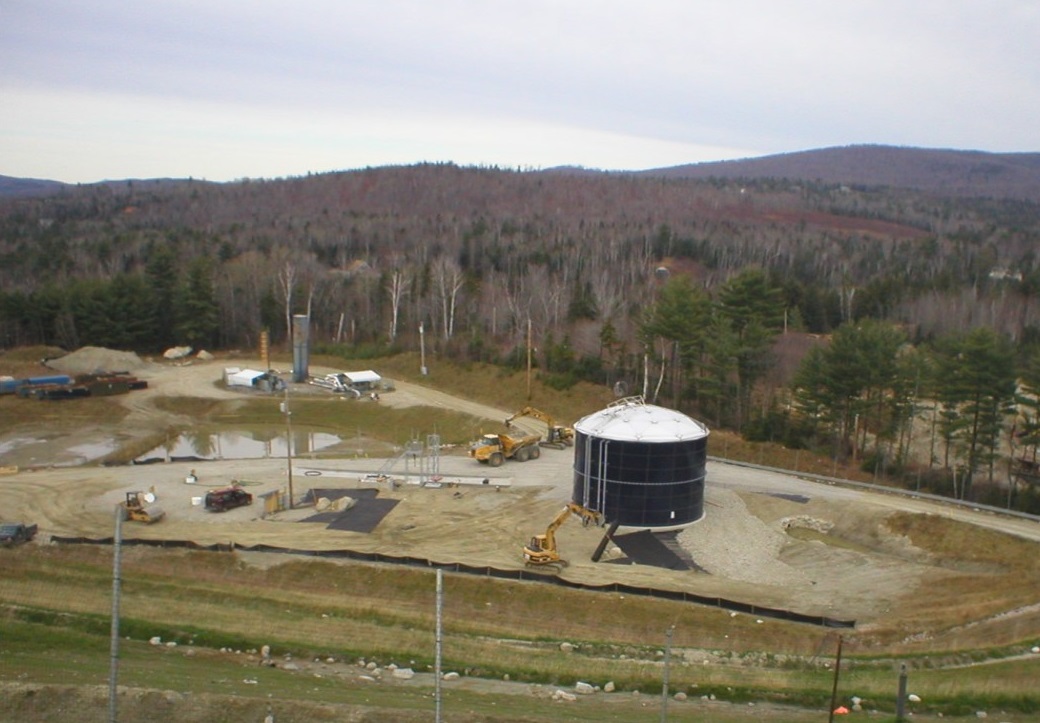Landfills
Monitoring and regulating active and inactive landfills across the state.
In New Hampshire, landfills are a part of the historical and present infrastructure. NHDES along with other local, state and federal agencies has regulatory oversight in every phase including development, construction, operation and closure, and post-closure care. Each of these phases initiates an action from any number of programs within NHDES. And, even after the landfill ceases to operate, there are additional regulations and responsibilities that must be adhered to by the permittee/owner.
The Solid Waste Management Bureau (SWMB) assures compliance through training, inspection and enforcement at proposed and existing solid waste facilities that manage waste by landfilling. Landfills are facilities that collect and dispose of solid waste by the intentional placement of the waste in or on land where it will remain after closure of the facility. New Hampshire has six operating double-lined landfills, one operating single-lined landfill, and two operating unlined landfills. In addition, New Hampshire has over 250 inactive, closed landfills, most of which are unlined and municipally-owned. Landfills are required to be permitted by NHDES. Changes to these facilities also require approval from NHDES. We must take care of these waste containment facilities until the waste no longer poses a risk to human health or the environment.
Landfills also can produce objectionable odors and landfill gas when bacteria break down organic waste. EPA has developed New Source Performance Standards (NSPS) and National Emission Standards for Hazardous Air Pollutants (NESHAPs) to address air pollutants of concern from landfills. For landfills that don’t trigger requirements contained in federal NSPS and NESHAPs, New Hampshire is planning on taking the federal plan for landfills once it is final. New Hampshire also regulates toxic air pollutants from some landfills through the state air toxics regulation. In addition, the Air Resources Division is responsible for conducting inspections, evaluating plans and records, and monitoring compliance of landfill operations.
Related Content
Proposed Projects

Look up landfills and asbestos disposal sites
To obtain a list of New Hampshire’s operating solid waste landfills, inactive solid waste landfills and asbestos disposal sites, search our records on the OneStop database.

Asbestos Disposal Sites in New Hampshire
Asbestos disposal sites are effectively landfills of asbestos waste. There are over 300 known asbestos disposal sites in New Hampshire, mostly in Nashua and Hudson, that must be managed properly in order to protect human health and the environment. Specifically, these sites must be managed in accordance with RSA 141-E and Env-Sw 2100.

With few exceptions, a solid waste permit must be obtained for the construction, operation, closure and post-closure of a solid waste landfill. The purpose of the permitting system is to provide regulatory controls to assure proper management of solid waste facilities in order to protect the environment, public health and safety. Landfills not operated after July 9, 1981, are eligible for registration as a “Pre-1981 Landfill,” which exempts them from regulation under the Solid Waste Rules.
Did you know?
Did you know?
Anyone applying for a Standard Permit for a Landfill must also submit a Groundwater Management Permit Application.
Closure Grant Program
Providing reimbursement to municipalities for 20% of the eligible costs for the closure of an unlined landfill and/or incinerator.
Land Disturbance Permits
If 100,000 square feet or more of land disturbance will occur, for installing a solar array for example, an Alteration of Terrain permit is required.
Reusing sludge
The residual sludge at the end of the wastewater treatment process can be disposed of in landfills, but NHDES has a program to allow their beneficial use.




